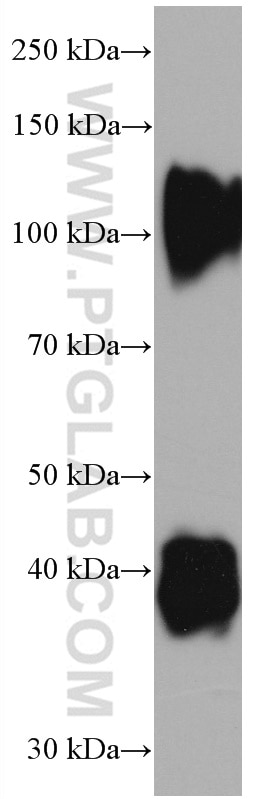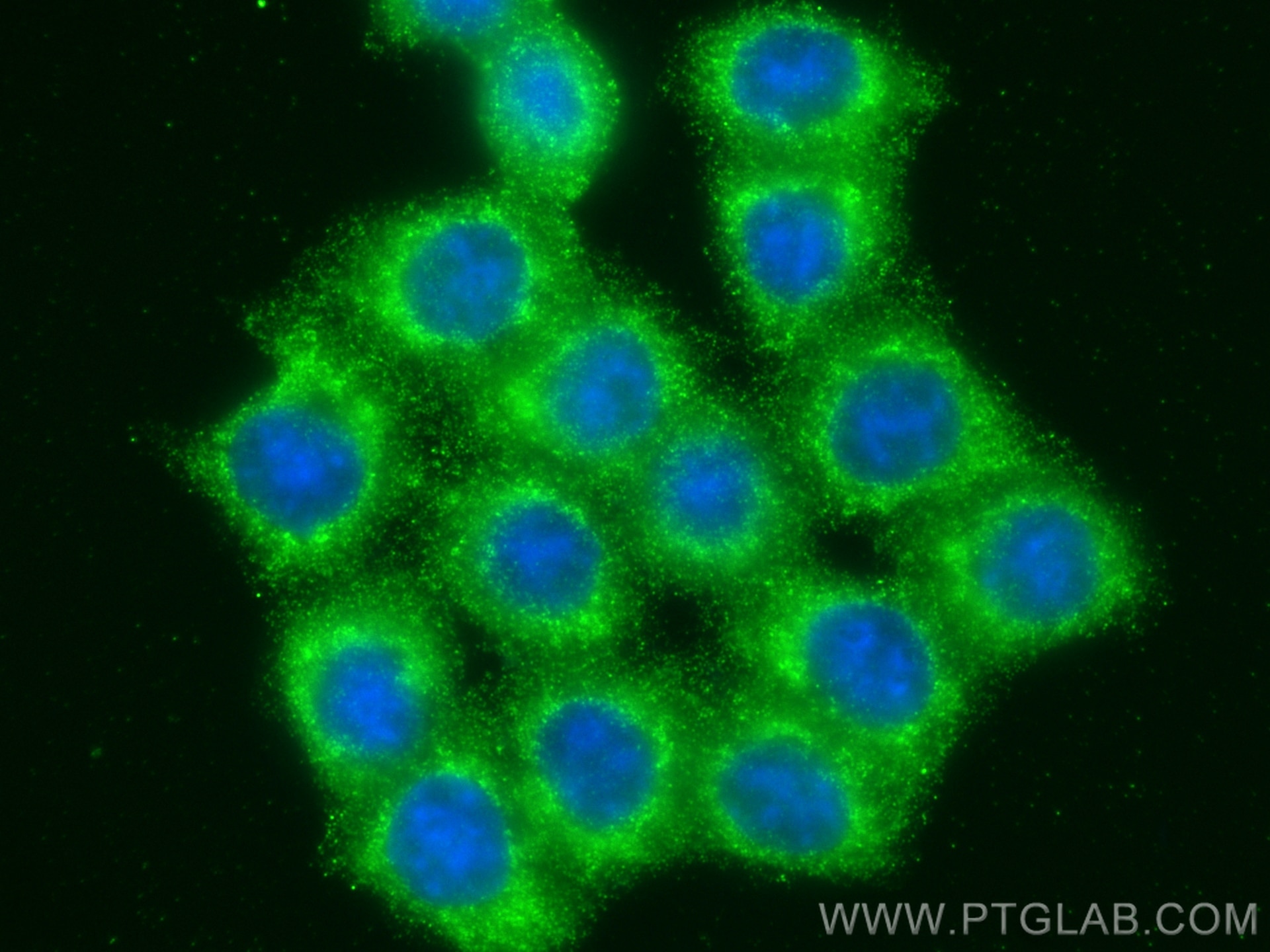Tested Applications
| Positive WB detected in | pig cartilage tissue |
| Positive IF/ICC detected in | BxPC-3 cells |
Recommended dilution
| Application | Dilution |
|---|---|
| Western Blot (WB) | WB : 1:1000-1:6000 |
| Immunofluorescence (IF)/ICC | IF/ICC : 1:200-1:800 |
| It is recommended that this reagent should be titrated in each testing system to obtain optimal results. | |
| Sample-dependent, Check data in validation data gallery. | |
Published Applications
| WB | See 1 publications below |
| IF | See 1 publications below |
Product Information
66847-1-Ig targets Decorin in WB, IF/ICC, ELISA applications and shows reactivity with human, pig samples.
| Tested Reactivity | human, pig |
| Cited Reactivity | human, rabbit |
| Host / Isotype | Mouse / IgG1 |
| Class | Monoclonal |
| Type | Antibody |
| Immunogen |
CatNo: Ag6275 Product name: Recombinant human DCN protein Source: e coli.-derived, PET28a Tag: 6*His Domain: 1-359 aa of BC005322 Sequence: MKATIILLLLAQVSWAGPFQQRGLFDFMLEDEASGIGPEVPDDRDFEPSLGPVCPFRCQCHLRVVQCSDLGLDKVPKDLPPDTTLLDLQNNKITEIKDGDFKNLKNLHALILVNNKISKVSPGAFTPLVKLERLYLSKNQLKELPEKMPKTLQELRAHENEITKVRKVTFNGLNQMIVIELGTNPLKSSGIENGAFQGMKKLSYIRIADTNITSIPQGLPPSLTELHLDGNKISRVDAASLKGLNNLAKLGLSFNSISAVDNGSLANTPHLRELHLDNNKLTRVPGGLAEHKYIQVVYLHNNNISVVGSSDFCPPGHNTKKASYSGVSLFSNPVQYWEIQPSTFRCVYVRSAIQLGNYK Predict reactive species |
| Full Name | decorin |
| Calculated Molecular Weight | 359 aa, 40 kDa |
| Observed Molecular Weight | 40 kDa, 100 kDa |
| GenBank Accession Number | BC005322 |
| Gene Symbol | Decorin |
| Gene ID (NCBI) | 1634 |
| RRID | AB_2882187 |
| Conjugate | Unconjugated |
| Form | Liquid |
| Purification Method | Protein A purification |
| UNIPROT ID | P07585 |
| Storage Buffer | PBS with 0.02% sodium azide and 50% glycerol, pH 7.3. |
| Storage Conditions | Store at -20°C. Stable for one year after shipment. Aliquoting is unnecessary for -20oC storage. 20ul sizes contain 0.1% BSA. |
Background Information
Decorin is a member of the small leucine-rich proteoglycan family of proteins. Decorin interacts with type I collagen fibrils, thereby influencing the kinetics of fibril formation and the distance between adjacent collagen fibrils. Binding of this protein to multiple cell surface receptors mediates its role in tumor suppression, including a stimulatory effect on autophagy and inflammation and an inhibitory effect on angiogenesis and tumorigenesis.
Protocols
| Product Specific Protocols | |
|---|---|
| IF protocol for Decorin antibody 66847-1-Ig | Download protocol |
| WB protocol for Decorin antibody 66847-1-Ig | Download protocol |
| Standard Protocols | |
|---|---|
| Click here to view our Standard Protocols |
Publications
| Species | Application | Title |
|---|---|---|
Int J Biol Macromol Decorin-mediated dermal papilla cell-derived exosomes regulate hair follicle growth and development through miR-129-2-3p/SMAD3/TGF-β axis | ||
Front Immunol Integrated single-cell RNA sequencing reveals the tumor heterogeneity and microenvironment landscape during liver metastasis in adenocarcinoma of esophagogastric junction |






